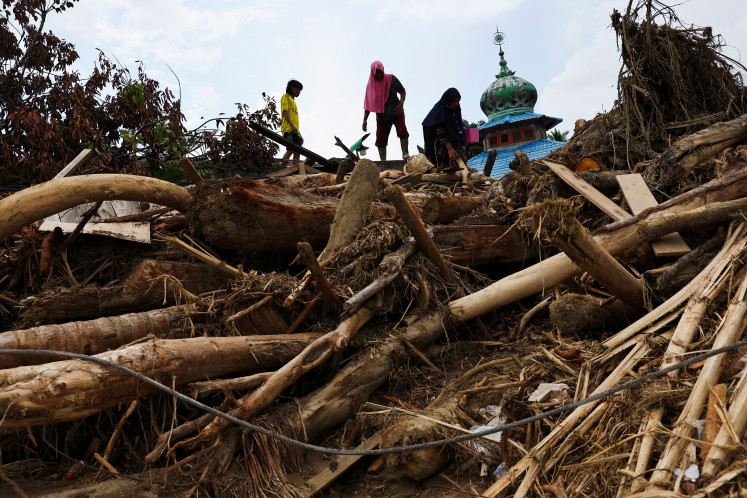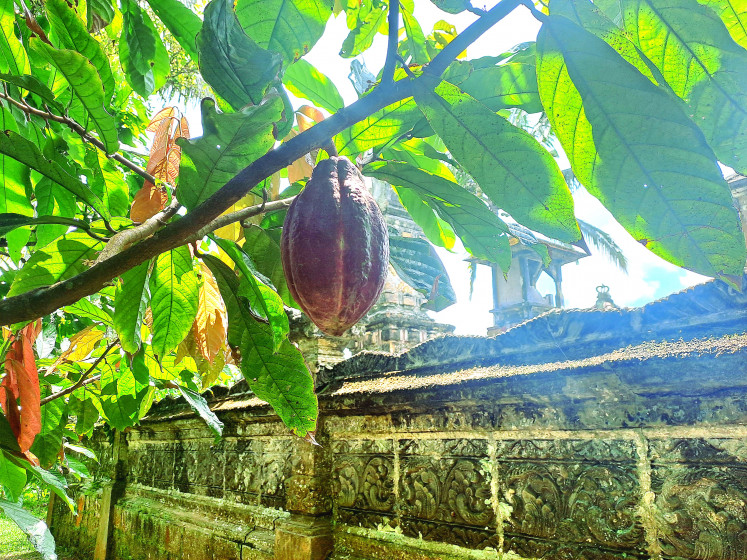Popular Reads
Top Results
Can't find what you're looking for?
View all search resultsPopular Reads
Top Results
Can't find what you're looking for?
View all search resultsRI to review trade deal with Japan in September
Indonesia expects to discuss the long-delayed review of its existing economic partnership agreement (EPA) with Japan in September in a move to enhance trade with the worldâs third-largest economy
Change text size
Gift Premium Articles
to Anyone
I
ndonesia expects to discuss the long-delayed review of its existing economic partnership agreement (EPA) with Japan in September in a move to enhance trade with the world's third-largest economy.
Trade Minister Muhammad Lutfi said that the government was preparing to bring its major concerns to the table under the Indonesia-Japan EPA (IJ-EPA) review.
The partnership dates back to 2008. After the first five years of its implementation, Indonesia found that the benefits of the deal had been less than expected. The country has since tried to reassess the IJ-EPA, but a review has not been realized until now.
'When asked whether we are ready, the answer is that we are ready. We are preparing the issues to be raised,' Lutfi said on Wednesday.
One of the key review points would be market access for Indonesian agricultural products and fishery output to the Japanese market, Lutfi said.
At present, fishery products from Indonesia are charged with higher import duties compared to similar products from other neighboring countries, such as the Philippines and Thailand.
The Indonesian team for the planned review will be led by officials from the Trade Ministry. The ministry's director general for international trade cooperation, Iman Pambagyo, however, could not be reached for comment on Thursday.
Research by the Centre for Strategic and International Studies (CSIS) launched last year revealed that Indonesia has yet to reap the maximum benefits from the IJ-EPA due to a lack of product diversification, which prevents it from taking advantage of expanded market access.
Garments and textiles, footwear, food processing, pulp and paper, as well as fisheries are the some of the sectors that could fail to see a significant upward trend in shipments to the world's third-largest economy. These sectors have obtained tariff reductions under the deal, but not to the point of zero percent, which some other sectors received.
Zero percent duties mostly go to the iron and steel, automotive, electronics and chemical industries.
The Industry Ministry's director general for international trade cooperation, Agus Tjahajana, said that in the area of industry, the government would address issues that hindered exports of industrial goods to Japan.
Exports of industrial products to Japan have grown faster than imports in the past five years, according to data from the Industry Ministry. Exports increased by only 3.5 percent to US$11.11 billion in 2013 from 2009, while imports soared by 8.1 percent to $19 billion over the period, resulting in a deficit of $7.88 billion.
'We don't want our exports to be continuously dominated by raw materials. We should seek ways to optimize our economic cooperation deals, which by nature is different to a free trade agreement,' Agus said.
The Industry Ministry's director for Asia Pacific and regional industry cooperation, A. Riyanto, said that Indonesia, as part of the review, would also propose a new approach to capacity building under the IJ-EPA framework.
Under the EPA's Manufacturing Industry Development Center (MIDEC) initiative, Japan has vowed to assist in improving the competitive edge of Indonesia's manufacturing industry in a variety of sectors, including metalworking, tooling techniques, welding techniques, automotive production, textiles, petrochemicals, oleochemicals and energy conservation.
'It's clear that we need a new approach to which sectors and activities in MIDEC must be focused on to increase penetration of our manufactured goods to Japan and boost the competitiveness of our manufacturing industry,' Riyanto said.










